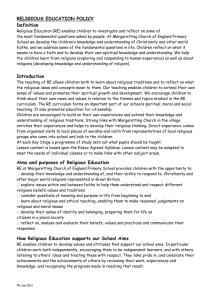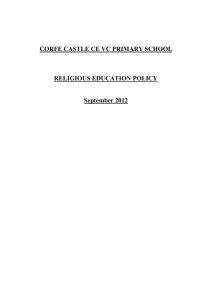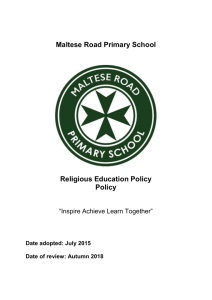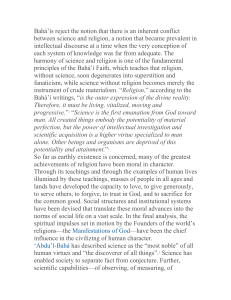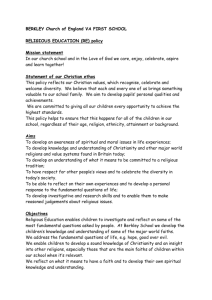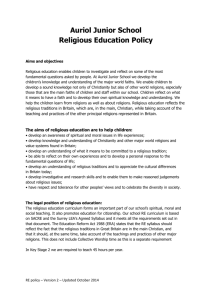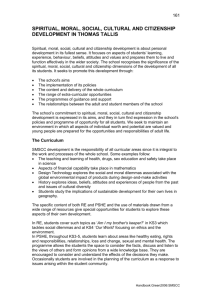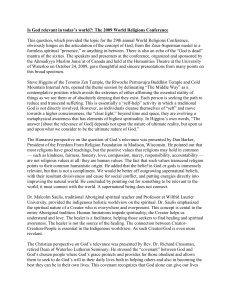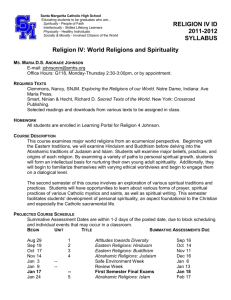religious education policy
advertisement
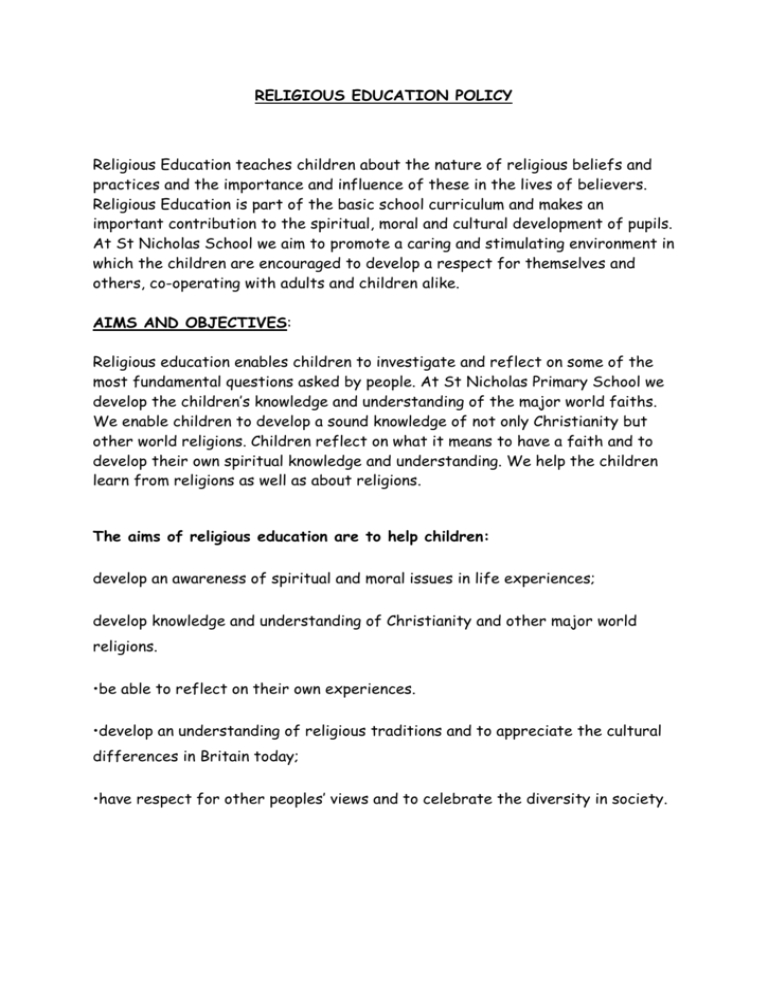
RELIGIOUS EDUCATION POLICY Religious Education teaches children about the nature of religious beliefs and practices and the importance and influence of these in the lives of believers. Religious Education is part of the basic school curriculum and makes an important contribution to the spiritual, moral and cultural development of pupils. At St Nicholas School we aim to promote a caring and stimulating environment in which the children are encouraged to develop a respect for themselves and others, co-operating with adults and children alike. AIMS AND OBJECTIVES: Religious education enables children to investigate and reflect on some of the most fundamental questions asked by people. At St Nicholas Primary School we develop the children’s knowledge and understanding of the major world faiths. We enable children to develop a sound knowledge of not only Christianity but other world religions. Children reflect on what it means to have a faith and to develop their own spiritual knowledge and understanding. We help the children learn from religions as well as about religions. The aims of religious education are to help children: develop an awareness of spiritual and moral issues in life experiences; develop knowledge and understanding of Christianity and other major world religions. •be able to reflect on their own experiences. •develop an understanding of religious traditions and to appreciate the cultural differences in Britain today; •have respect for other peoples’ views and to celebrate the diversity in society. The legal position of religious education Our school curriculum for religious education meets the requirements of the 1988 Education Reform Act (ERA). The ERA stipulates that religious education is compulsory for all children, including those in the reception class who are less than five years old. The ERA allows parents to withdraw their child from religious education classes if they so wish, although this should only be done once the parents have given written notice to the school governors. The ERA also allows teachers to refuse to teach religious education, but only after they have given due notice of their intention to the school governors. The religious education curriculum forms an important part of our school’s spiritual, moral and social teaching. Teaching and learning style We base our teaching and learning style in RE on the key principle that good teaching in RE allows children both to learn about religious traditions and to reflect on what the religious ideas and concepts mean to them. Our teaching enables children to extend their own sense of values and promotes their spiritual growth and development. We encourage children to think about their own views and values in relation to the themes and topics studied in the RE curriculum. Our teaching and learning styles in RE enable children to build on their own experiences and extend their knowledge and understanding of religious traditions. We use their experiences at religious festivals such as Easter, Passover, Diwali etc. to develop their religious thinking. We organise visits to local places of worship and where possible have invited representatives of local religious groups to come into school and talk to the children. Parents of different religions are invited to come in and talk about the religious experiences with the children. We provide suitable learning opportunities for all children by matching the challenge of the task to the ability of the child. We achieve this in a variety of ways: 1. Through sharing knowledge and experience. 2. By using the five senses. 3. Expressing their own responses through such media as role play, music and drama. 4. Handling artefacts 5. Enjoying time to reflect and evaluate. Curriculum planning in religious education 4We plan our religious education curriculum in accordance with the LEA’s Agreed Syllabus. We ensure that the topics studied in religious education build upon prior learning. We offer opportunities for children of all abilities to develop their skills and knowledge in each unit, and we ensure that the planned progression built into the scheme of work offers the children an increasing challenge as they move through the school. We carry out the curriculum planning in religious education in three phases (long-term, medium-term and short-term). The long-term plan maps the religious education topics studied in each term during each key stage and our medium-term plans give details of each unit of work for each term. Contribution of religious education to the teaching of other subjects Literacy Religious education contributes significantly to the teaching of Literacy in our school by actively promoting the skills of reading, writing, speaking and listening. Information and communication technology (ICT) We use ICT where appropriate in religious education through using the internet and CD ROMs. Cameras and sound recorders are also used to record evidence of work. Personal, social and health education (PSHE) and citizenship Through our religious education lessons, we teach the children about the values and moral beliefs that underpin individual choices of behaviour. Spiritual, moral, social and cultural development Through teaching religious education in our school, we provide opportunities for spiritual development. Children consider and respond to questions concerning the meaning and purpose of life. We help them to recognise the difference between right and wrong through the study of moral and ethical questions. We enhance their social development by helping them to build a sense of identity in a multicultural society. Children explore issues of religious faith and values and, in so doing, they develop their knowledge and understanding of the cultural context of their own lives. Assessment and recording We assess children’s work in religious education by making informal judgements as we observe them during lessons. We annotate a piece of work once it has been completed and we comment as necessary. The RE subject leader keeps samples of children’s work in a portfolio. This documents the work carried out in RE throughout the school. Date of policy: October 2013. Policy to be further adapted when the new RE scheme of work has been written.
